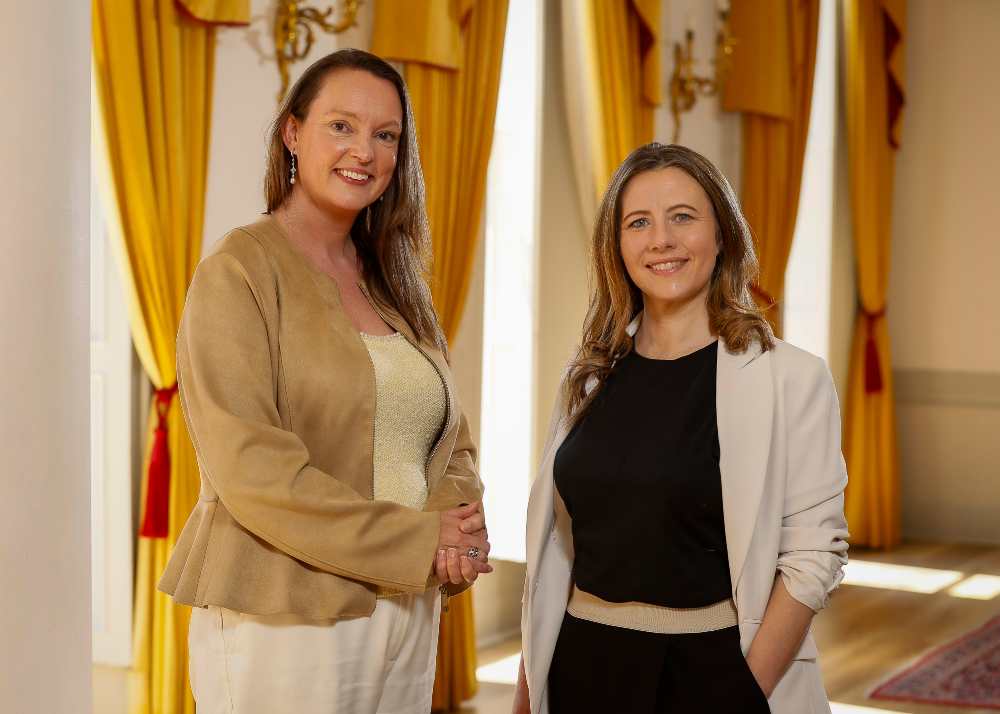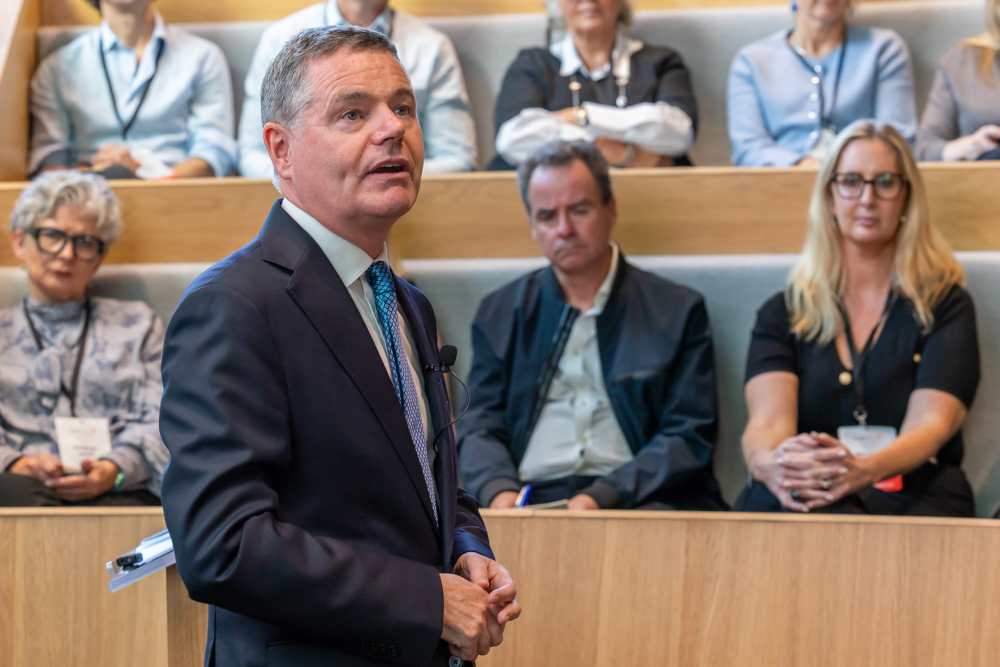Budget 2026 must do more to support Irish private businesses, simplify tax, boost FDI, and address housing and infrastructure gaps to secure long-term growth, urges Paraic Burke from PwC.
As the Government approaches the first budget of its term, there’s a lot to be considered. With the introduction of tariffs and other global headwinds, we see a much more challenging economic environment than previous years.
Infrastructural gaps and innovation capacity are hindering Ireland’s competitiveness. Despite current strong tax revenues and a robust fiscal position, the past few months have been turbulent for many Irish businesses, with future economic uncertainty.
“The Government must deliver a strong message to the business community that Ireland is ready to do what it can to support growth, diversify trade and promote sustainable investment”
The decisions made by Government in this year’s Budget are crucial to securing Ireland’s prosperity.
Targeted spending in a tight fiscal space
The Irish Government’s €9.4bn budget package aims to address domestic pressures and navigate global uncertainties.
With a €1.5bn tax package, of which some €867m has been earmarked to reduce VAT on hospitality, there is very little room for other tax cuts as matters currently stand.
We explore key priorities and measures Government should consider to support individuals, private businesses and importantly, continue to enhance Ireland’s appeal for foreign direct investment.
More to do to support Irish private businesses
Backing private enterprises is crucial for Ireland’s economic success in the face of global uncertainties and tariffs. The Government must deliver a strong message to the business community that Ireland is ready to do what it can to support growth, diversify trade and promote sustainable investment.
With risks associated with concentration of our tax receipts from a relatively small number of large taxpayers, we must support entrepreneurs, who can be engines of our future prosperity. Reducing Ireland’s Capital Gains tax (‘CGT’) rate from 33% to 20% to stimulate capital transactions and business succession could have significant benefits.
We also believe that allowing an owner access up to €10m equity in their company at a lower CGT rate could be a game changer in increasing Ireland’s attractiveness for entrepreneurs.
Modest amendments, such as applying a 12.5% corporation tax rate to income generated from rental properties leased to employees, and providing relief from benefit-in-kind liabilities for below-market rents, could make a difference to talent retention at nominal cost to the Exchequer.
Enterprise Ireland has launched a fund specifically to support exporters affected by US tariffs offering targeted grants. To be truly effective, however, accessing these funds must remain free from excessive administrative hurdles. Private businesses are the largest employer in the country.
Encouraging and reducing the cost of new employment is important also, such as introducing a rebate of up to 50% of employers’ PRSI for employees earning up to €26,000, for an initial 12-month period.
The Irish tax system is overly complex and is, in some instances, inoperable for small and medium sized enterprises. Introducing simplification measures, such as an abbreviated corporate tax return, would be a step towards rebalancing the burden.
There was little detail in Government’s recent Action Plan on Competitiveness and Productivity about how tax policy could be used to achieve the stated aims. We would hope that the detail of supporting tax measures will be made clear on 7th October. Real and immediate action is needed to strengthen the tax policies highlighted, including enhancements to the R&D tax credit and forward-thinking tax measures such as a standalone innovation credit. Collectively, these ideas can support productivity gains and restore Ireland’s competitive edge.
A coherent strategy to boost Ireland’s FDI
In a competitive world, bold decisions are needed to reinforce Ireland’s attractiveness for foreign direct investment (FDI). Targeted incentives to encourage investment in Ireland around sectors such as artificial intelligence (AI) and refining the research and development (R&D) tax credit would, in our view, bolster Ireland’s competitiveness for FDI.
The Government must also commit to modernising the tax regime by addressing current issues in relation to the participation exemption for foreign dividends, and widening the scope of the regime to encompass branch profits. Amendments in areas like interest deductibility and simplifying reliefs such as the Employment Investment Incentive Scheme (EIIS) are urgently needed to facilitate global investment.
A significant opportunity to fix housing and infrastructure
Budget 2026 represents a pivotal opportunity for the Government to address Ireland’s lack of housing and infrastructural gaps, where tax measures can play a vital role.
Key measures such as reforming the Residential Zoned Land Tax (RZLT) and extending the Stamp Duty Residential Rebate Scheme are crucial to making housing development more viable and affordable. Additionally, implementing a temporary VAT reduction on new, affordable homes will assist affordability for first-time buyers. Reducing Capital Gains Tax (CGT) for retrofitted properties is recommended to encourage energy-efficient upgrades. To encourage more private investment, modernising the Real Estate Investment Trust (REIT) regime could enhance sector stability in unlocking investment.
To fix infrastructural gaps, innovative tax policies to spur renewable energy investments, including in our port infrastructure, and facilitate decarbonisation efforts will be vital. Tax measures for clean technologies and green industrial infrastructure will promote sustainable energy consumption and transport methods, helping Ireland transition to a greener future to the benefit of generations to come.
Budget 2026 needs to get the balance right
Budget 2026 presents an important opportunity for the Government to tackle urgent national challenges while boosting Ireland’s competitiveness.
More support for Ireland’s private businesses and thoughtful allocation in critical areas, like housing and infrastructure, will significantly impact Ireland’s long-term growth prospects and competitiveness.
It is paramount that Budget 2026 gets the balance right.
-
Bank of Ireland is welcoming new customers every day – funding investments, working capital and expansions across multiple sectors. To learn more, click here
-
For support in challenging times, click here
-
Listen to the ThinkBusiness Podcast for business insights and inspiration. All episodes are here. You can also listen to the Podcast on:
-
Spotify
-
SoundCloud
-
Apple





